The demand for Digital Customer Experience Platforms is growing, prompting companies to implement customized plans that meet the needs of different clients. Companies often face the challenge of shaping customer perceptions related to their relationship with a particular product.
Nevertheless, enhancing this interaction and, importantly, personalizing it is an achievable goal, given the growing focus of numerous DCX solution providers across industries.
What are Digital Customer Experience Platforms?
Platforms for the digital customer experience are created to refine and advance interactions between companies and their clients through a variety of online channels. These platforms give organizations the ability to develop, control, evaluate, and boost customer experiences in the online world thanks to a rich toolbox of features.
Here is our selection of these tools ⬇️
17 Best Digital Customer Experience Platforms
- UXtweak
- LiveAgent
- Bloomreach
- Zendesk
- Freshdesk
- Contentsquare
- Podium
- Qualtrics
- SAS
- Medallia
- Birdeye
- SurveySparrow
- Sitecore
- Acquia
- Jahia
- Monetate
- HeadSpin
For each tool, we evaluated:
- Features
- Pricing
- Pros & cons
What else will you find in this article:
- Description of each tool
- Aspects to consider when choosing a digital customer experience platform
- Free digital customer experience platforms
1. UXtweak
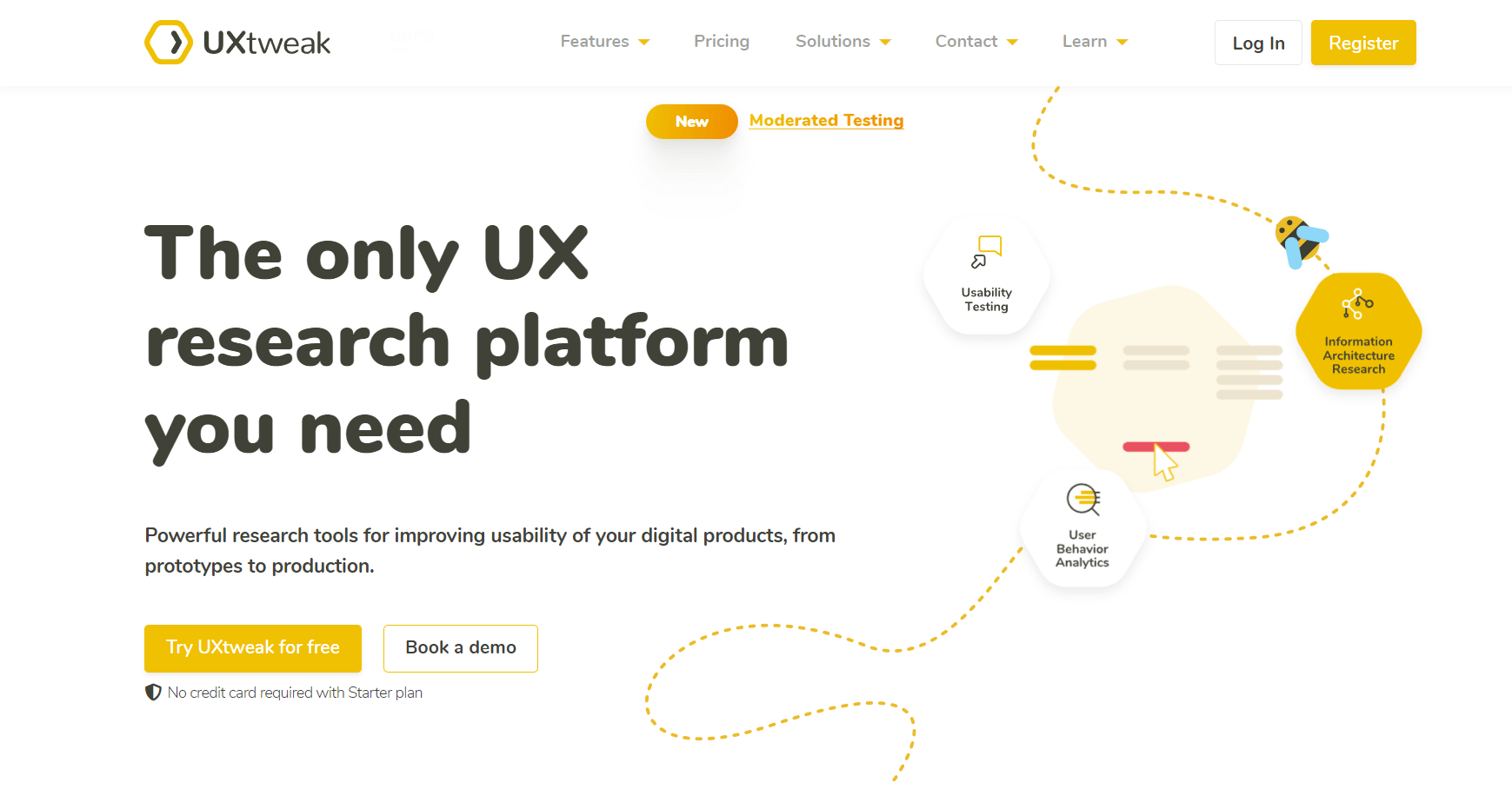
As a dynamic DCX tool, UXtweak is essential for gathering priceless customer feedback and improving products through meticulous testing. This platform enables organizations to make well-informed decisions for product upgrades by empowering them to fully understand customer interactions, preferences, and pain points.
Features
- Survey Tool
- Preference Test Tool
- Mobile Testing
- Website Testing
- Prototype Testing
- Card Sorting
- Tree Testing
- Five Second Test
- First Click Test
- Session Recording & Heatmaps
Pros
- The ability to collect invaluable customer feedback and ideas to improve the product
- Conduct both moderated and unmoderated tests for diverse evaluation needs
- Access over 155 million members globally for streamlined participant recruitment
Cons
- Setting up the study is a bit complicated due to numerous available options for utilization
Pricing
For small projects, a free plan is provided. The pro package is available for 80€/month. There are also customized price options.
2. LiveAgent
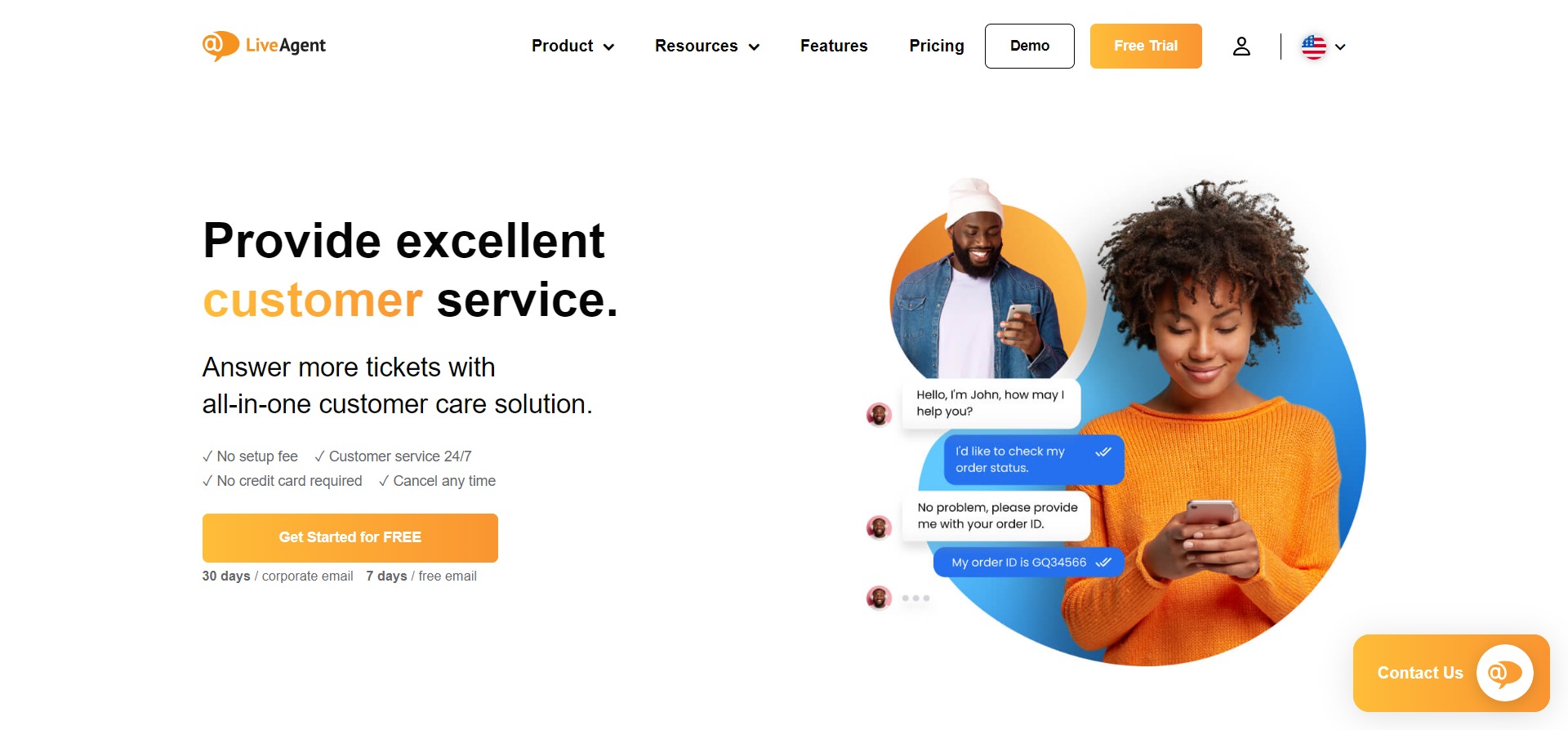
LiveAgent offers a variety of CRM capabilities, including marketing and sales automation. It’s a versatile solution that develops as businesses increase their consumer base and online offerings. A ticket system built into the program keeps track of all conversations, emails, phone calls, and previous correspondence between clients and the customer support team.
Features
- Ticketing System
- Live Chat
- Knowledge Base
- Call Center
- Social Media Integration
- Email Integration
- Customer Portal
- Feedback Management
- Time Tracking
- Reporting & Analytics
Pros
- Facilitate the prompt processing of customer requests.
- Organization of customer needs and quick response to them.
- Simplifying customer interaction and engagement.
Cons
- Pricing for small businesses can be high
Pricing
LiveAgent has different plans depending on your business type starting at $9 per month, and they also offer a free plan with limitations.
3. Bloomreach
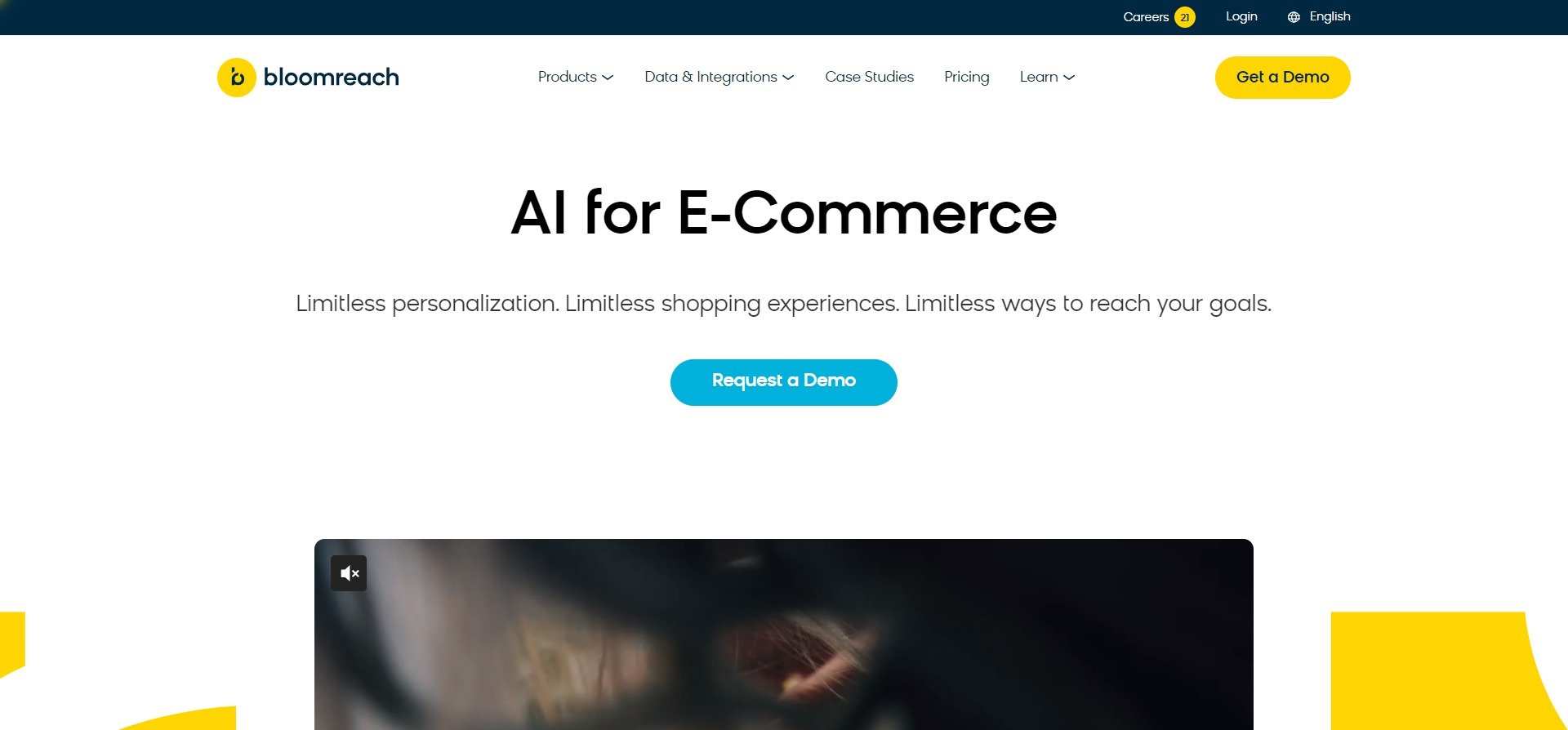
By bringing key components together inside a single framework, Bloomreach focuses on the core parts of the commerce experience. This strategy helps teams coordinate their activities and focus on a key goal: achieving client happiness and loyalty.
Features
- Site Search
- Personalization
- Content Management
- SEO Optimization
- Product Discovery
- Merchandising Tools
- Path Analysis
- AI & Machine Learning Capabilities
- A/B Testing
- API-first Architecture
Pros
- Bloomreach offers a highly intuitive interface.
- Simple template customization for campaigns.
- Quick and helpful assistance from the support team.
Cons
- In some cases, there may be a lack of customisation
Pricing
Pricing is per request.
4. Zendesk
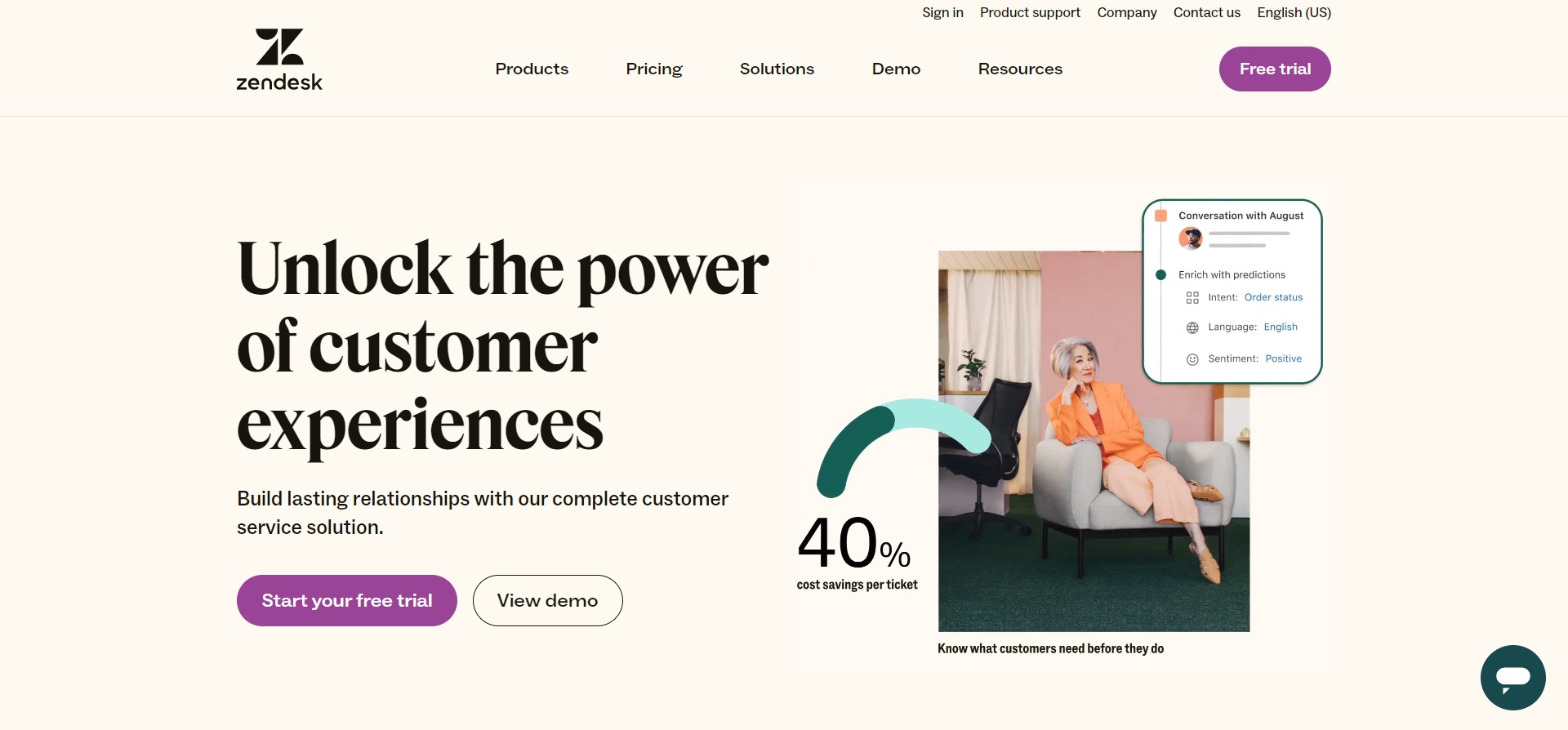
As a cloud-based help desk management system, Zendesk provides adaptable tools for building online communities, knowledge bases, and customer support portals. This system has front-end portals that can be customized, live chat capabilities, and seamless connection with Google Analytics and Salesforce.
Features
- Ticketing System
- Live Chat (Zendesk Chat)
- Knowledge Base (Zendesk Guide)
- Call Center Software (Zendesk Talk)
- Social Media Integration
- AI-powered Answer Bot
- Self-Service Portals
- Reporting & Analytics
- Multi-channel Support
- Collaboration Tools
Pros
- Simplifies customer communication and interaction.
- Facilitates teamwork and interaction with other teams.
- Helps manage individual workloads effectively.
Cons
- Lengthy periods for implementing necessary changes.
Pricing
Zendesk offers a free trial and prices for their plans start at €55 per month if paid annually.
5. Freshdesk

With the use of Freshdesk, a cloud-based service platform, companies can easily provide customer assistance throughout numerous client engagements. It gives businesses the ability to monitor client discussions that take place through email, the phone, chat, and social media.
Features
- Omni-channel Support
- Ticketing System
- SLA Management
- Knowledge Base
- AI-powered Chatbots
- Time Tracking
- Automation Tools
- Collaboration Features (Team Huddle)
- Reporting & Analytics
- Marketplace (for integrations)
Pros
- It includes effective tools for developing and designing sales strategies that track all leads.
- Notable feature allowing efficient handling of customer inquiries.
- Easy creation of personalized flows based on specific ticket attributes.
Cons
- Periodic difficulty in locating previous emails, sometimes unrelated to archiving.
Pricing
Freshdesk has both a free trial and a free plan. Pro plan costs 49 euros per month with a yearly payment.
6. Сontentsquare
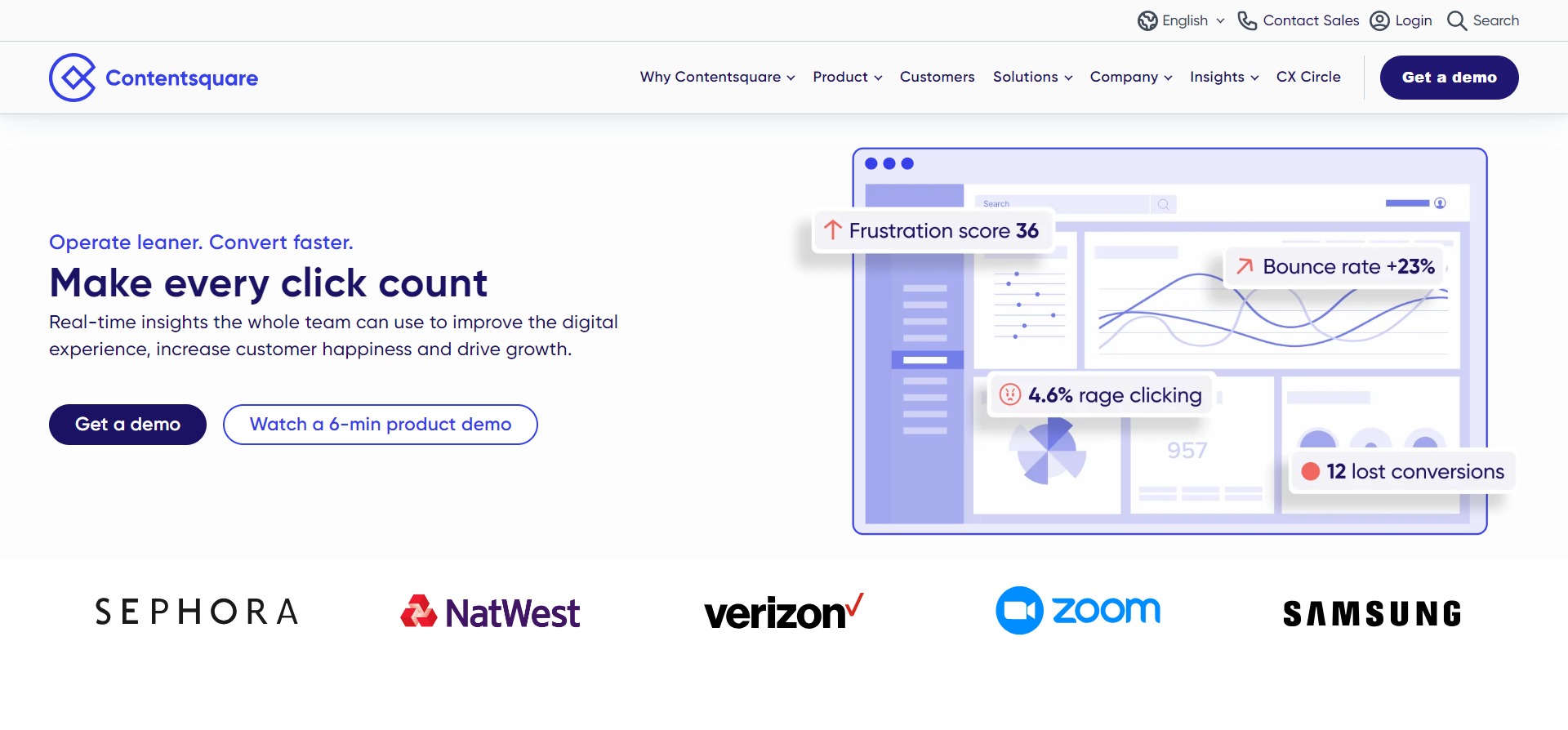
Contentsquare functions as a cloud-based digital experience analytics platform. It keeps track of enormous volumes of digital interactions, turning these online behaviours into useful data that anybody can use to improve customer experiences, spur revenue development, and promote innovation.
Features
- Session Replay
- Heatmaps
- Journey Analysis
- Funnel Analysis
- Zone-Based Analytics
- Revenue Attribution
- Mobile App Analytics
- Error & Rage Click Detection
- AI Insights & Recommendations
- UX Performance Metrics
Pros
- Contentsquare’s platform enables rapid and efficient analysis of daily data volume.
- The platform’s structure enhances data management capabilities.
- Custom panel creation benefits from the tools, offering flexibility and adaptability.
Cons
- This setup phase can slightly prolong the process of getting the entire platform operational and aligned with current checkout events.
Pricing
Pricing is per request.
7. Podium

Podium operates as a marketing and communication platform that uses text messaging to improve local companies’ internet presence, lead conversion, and client retention.
Features
- Online Reviews Management
- Messaging Platform
- Webchat
- Feedback Collection
- Team Chat
- Payment Processing
- Lead Generation
- Customer Surveys
- Video Chat
- Reporting & Analytics
Pros
- Podium’s interface is highly intuitive and easy to navigate.
- Enables collection of honest customer reviews and feedback.
Cons
- Price
Pricing
Podium offers a free trial for 14 days. Prices for plans start from $249 per month paid annually.
8. Qualtrics Customer XM

With support for enterprises of all sizes, Qualtrics CustomerXM runs as a cloud-based customer experience management solution. It helps track client interactions and forecast buying trends. Its key characteristics include survey design, audience segmentation, communication management, and NPS tracking.
Features
- NPS (Net Promoter Score) Measurement
- Customer Satisfaction Surveys
- Transactional Feedback
- Customer Segmentation & Profiling
- Predictive & Driver Analysis
- Ticketing & Case Management
- Trend & Text Analysis
- Role-Based Dashboards
- Closed-Loop Feedback
- Integration Capabilities
Pros
- Enables individualized surveys for each respondent.
- Provided robust options to display tailored questions based on feedback.
- Streamlined and uncomplicated interface, ensuring software usability for all users.
Cons
- High cost
Pricing
Pricing is per request.
9. SAS Customer Intelligence 360

SAS Customer Intelligence 360 stands as a contemporary marketing organization’s multichannel marketing hub. SAS Customer Intelligence builds a thorough customer profile by fusing customer data from physical channels and online behavior, enabling marketers to turn insights into successful offers and campaigns.
Features
- Customer Data Management
- Real-time Decisioning
- Advanced Analytics
- Personalization & Targeting
- Multi-channel Campaign Management
- A/B Testing & Optimization
- Customer Journey Maps & Analysis
- Digital Tracking & Data Collection
- Segmentation & Predictive Modeling
- Integration Capabilities
Pros
- SAS Customer Data Platform boasts ease of use and user-friendly interface.
- Efficiently creates tailored reports, enhancing data presentation.
- Facilitates organized data presentations for management’s informed choices.
Cons
- The overall package cost might be on the higher side for small businesses.
Pricing
Pricing is per request.
10. Medallia Experience Cloud
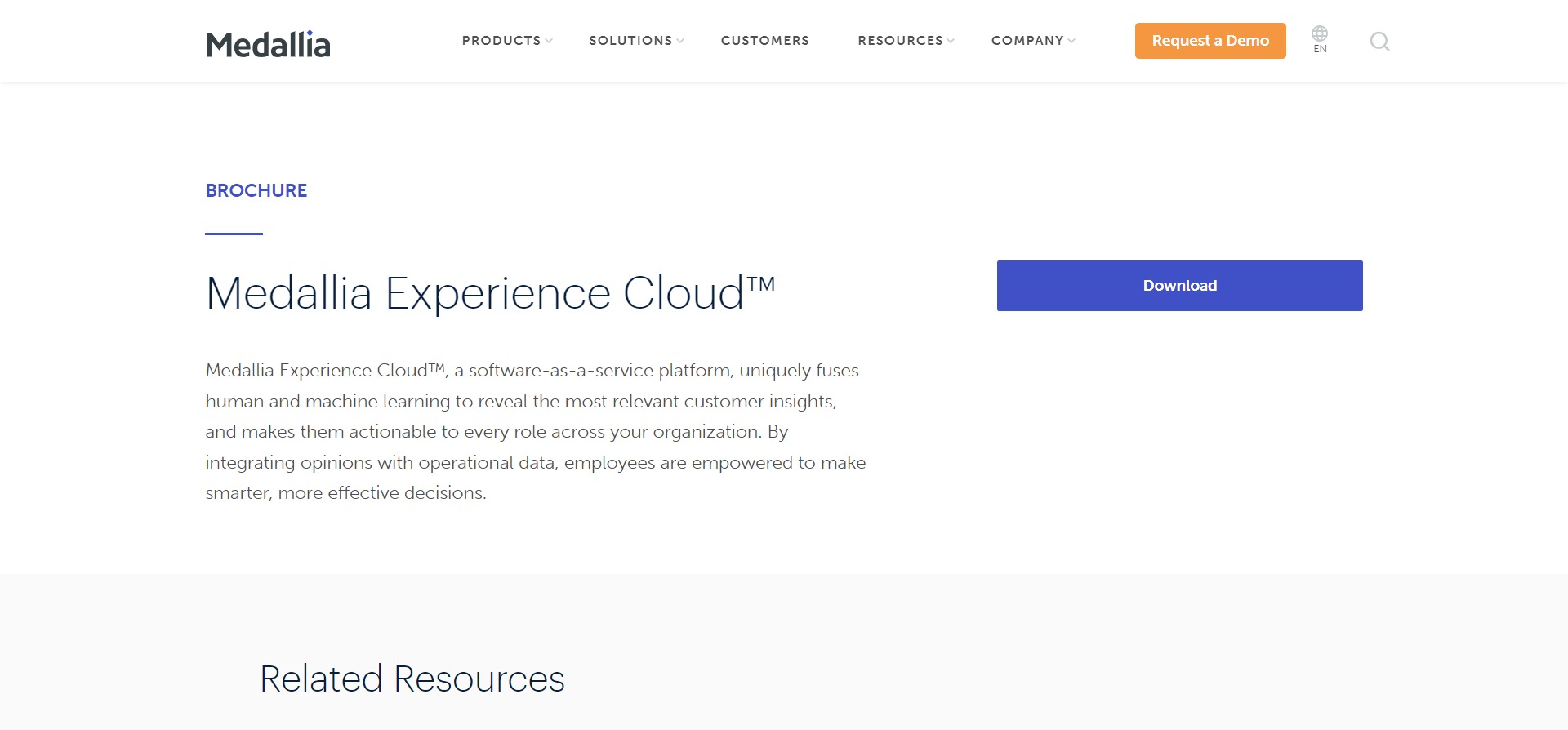
Medallia is a text analytics solution that improves the experiences of consumers, staff, and products by utilizing AI and machine learning. In order to ensure that information and insights are distributed appropriately based on user roles and responsibilities, Medallia also provides administrators with the option to create organizational hierarchies and regulate access privileges.
Features
- Real-time Feedback Collection
- Text Analytics
- Digital Experience Insights
- Video Feedback
- Mobile Feedback
- Role-Based Reporting & Dashboards
- Journey Mapping
- Action Management & Alerts
- Case Management
- Integration Capabilities
Pros
- Provides in-depth information for each question presented to the customer.
- Offers graphical representations for daily, weekly, and monthly data.
- User-friendly filter system for accessing details about individuals, teams, or entire projects/campaign
Cons
- Web/system experiences occasional problems.
Pricing
Pricing is per request.
11. Birdeye
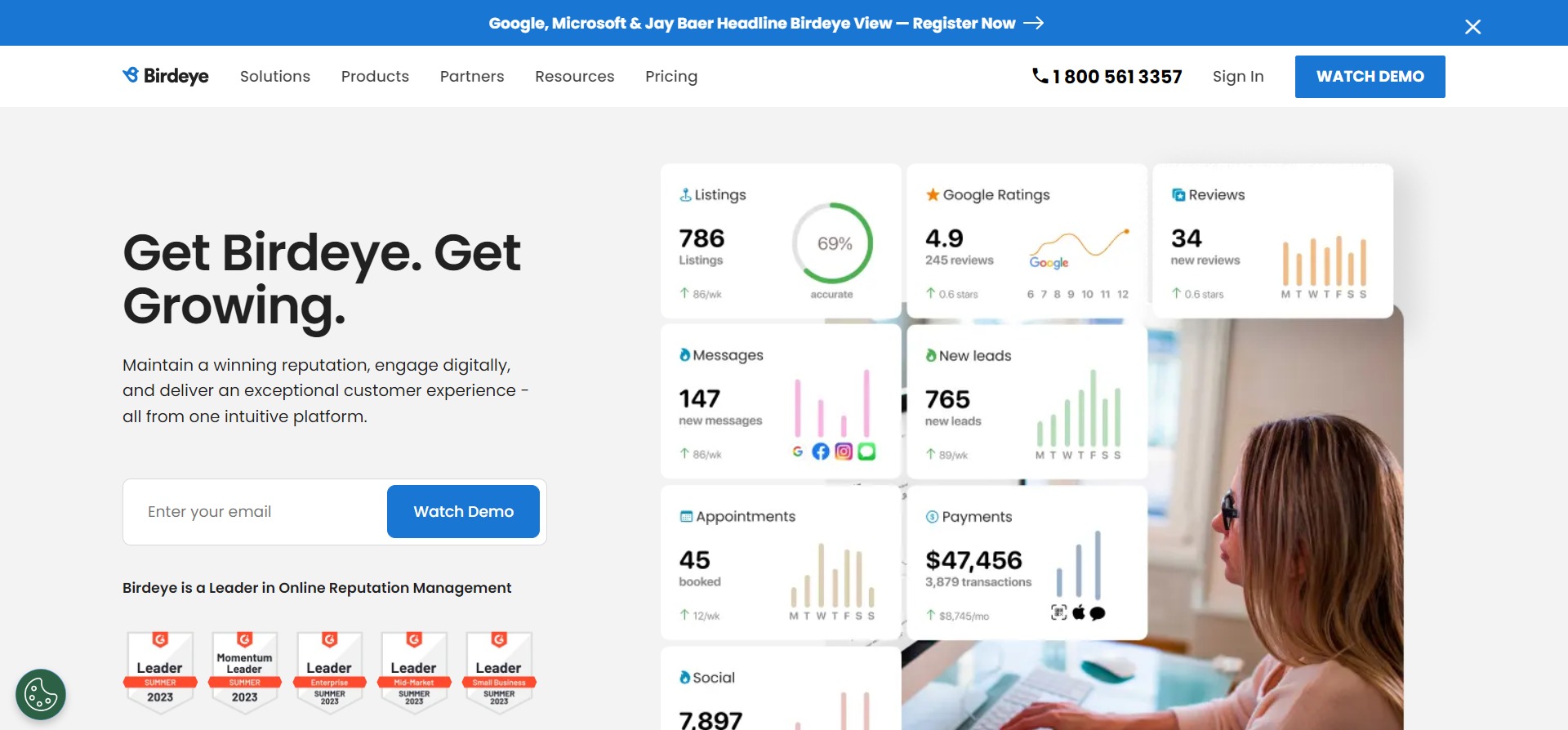
The flexible online review management tool Birdeye Reviews has multi-channel features. It enables businesses with several locations to ask for, reply to, and improve feedback. The programme fully connects with your CRM/PMS system, automating review requests for effective feedback gathering using AI.
Features
- Online Review Management
- Review Generation
- Survey Management
- Customer Messaging (Text & Chat)
- Listings Management
- Referral Marketing
- Competitive Benchmarking
- Insights & Reporting
- Social Listening
- Webchat & Video Chat
Pros
- Birdeye excels in consolidating numerous customer messages into a unified, user-friendly dashboard.
- The interactive chatbot further elevates customer service, making Birdeye an invaluable tool for enhancing customer experiences.
Cons
- Birdeye offers numerous advantages but can be overwhelming for beginners due to its extensive feature set.
Pricing
Pricing is per request.
12. SurveySparrow
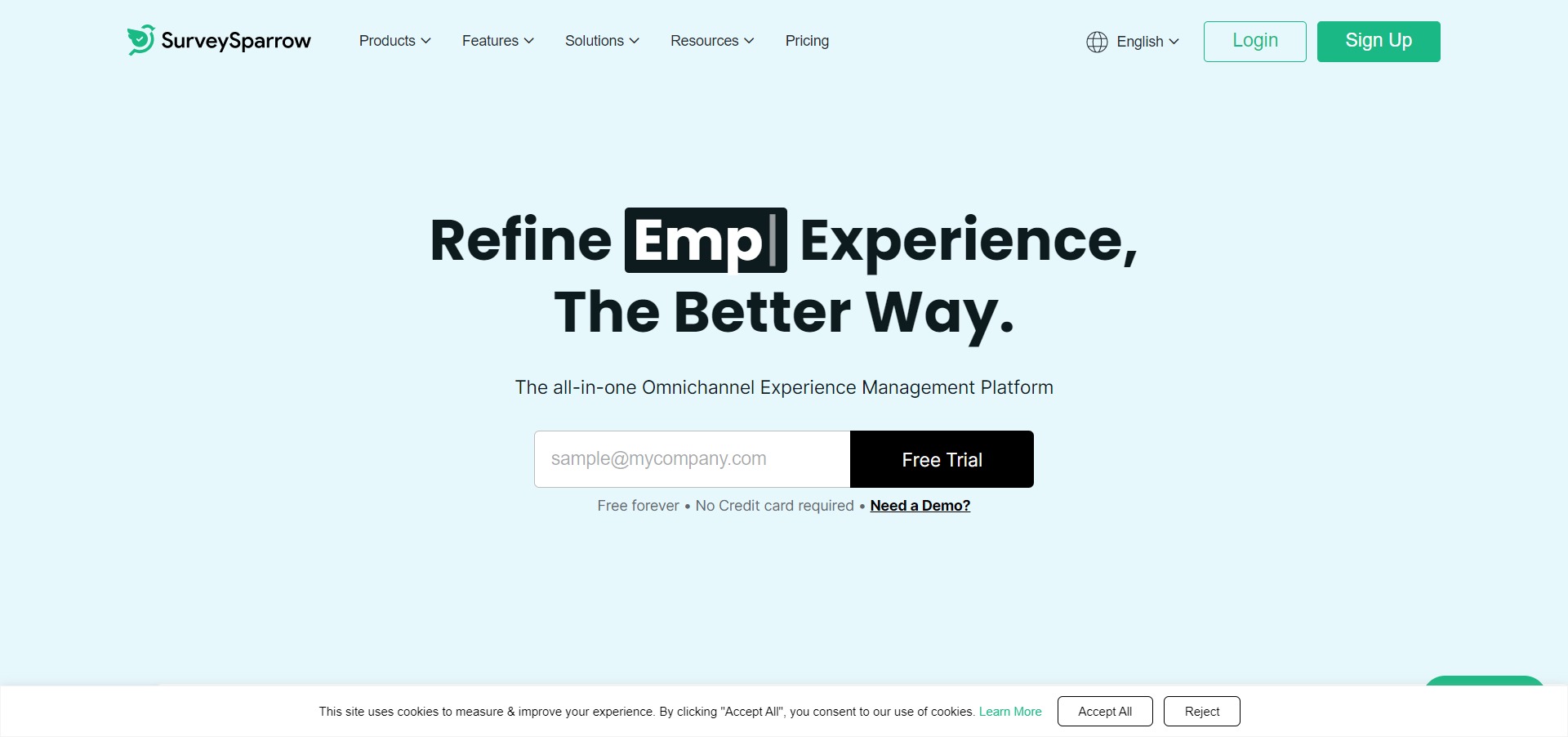
The customer experience solution SurveySparrow works in the cloud and is designed for companies of any size. It makes it simple to create interesting feedback surveys thanks to its single dashboard. The dashboard also gives users the option to import contacts and organize them into specific lists according to factors like age, geography, and job description.
Features
- Multi-Channel Surveys
- Conversational Surveys
- Embedded Surveys
- Recurring Surveys
- NPS (Net Promoter Score) Surveys
- Offline Surveys
- 360 Degree Feedback
- Audience Management
- Reporting & Analytics
- Survey Themes & Custom Branding
Pros
- The dashboard and user interface are notably clean and user-friendly.
- SurveySparrow allows for the creation of meaningful and easily comprehensible surveys with clear graphical representations.
- The export feature in SurveySparrow enables efficient data export to Excel, facilitating customization and presentation of survey data to the team.
Cons
- SurveySparrow is relatively more expensive compared to similar tools for the same type of work.
Pricing
Pricing is per request.
13. Sitecore
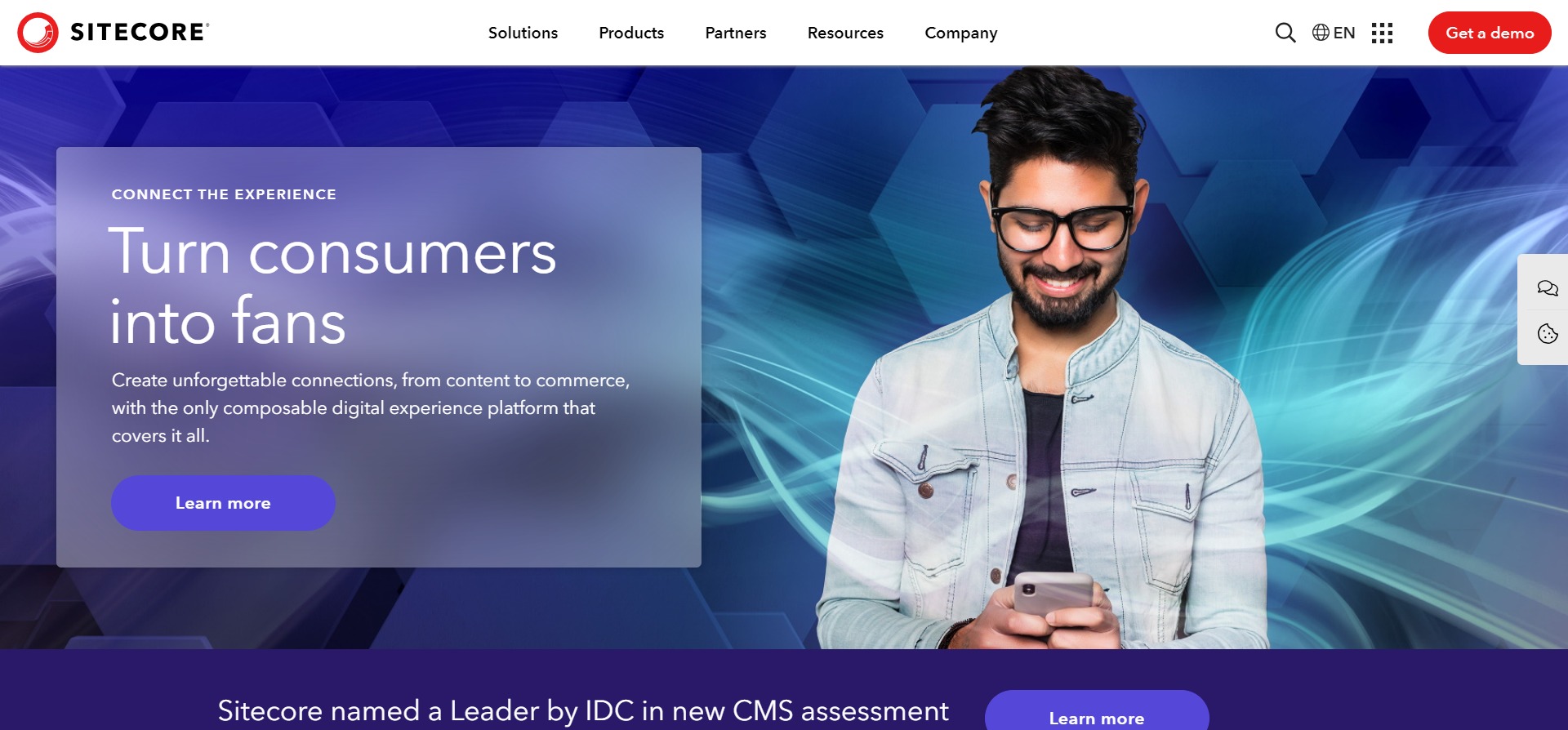
A cloud-based content management system called Sitecore Experience Platform is designed to help companies foster client connections by personalizing information across various channels.
Features
- Web Content Management (WCM)
- Personalization
- Multi-channel Marketing Automation
- E-commerce Integration
- A/B and Multivariate Testing
- Analytics and Insights
- Experience Database (xDB)
- Sitecore Experience Accelerator (SXA)
- Cloud Deployment (Sitecore on Azure)
- Headless Content Delivery
Pros
- Sitecore offers a multitude of built-in features, including image resizing and diverse problem-solving approaches.
- Once you become accustomed to template, layout, and content creation processes, generating new pages becomes a speedy and straightforward task.
Cons
- Sitecore has a challenging learning curve and a significant barrier to entry.
- Some features may go underutilized due to the challenge of implementing everything within time constraints.
Pricing
Pricing is per request.
14. Acquia
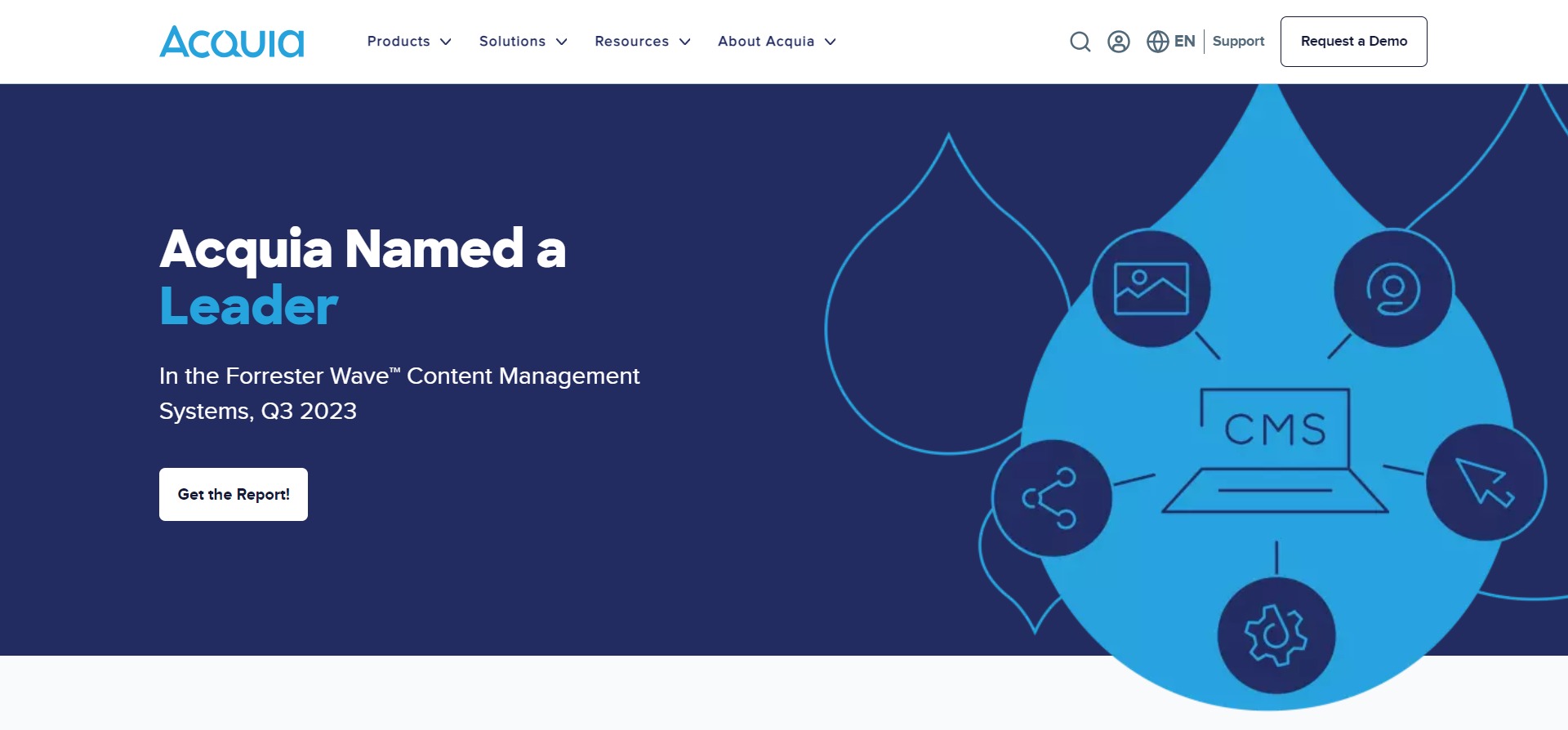
Acquia is a headless CMS designed to assist enterprises in a variety of industries. Professionals are given the tools they need to effectively produce, manage, publish, and oversee content across a variety of platforms, including websites, mobile devices, native applications, smartwatches, and more, all inside the Drupal framework.
Features
- Drupal Cloud (Web Content Management)
- Personalization (Acquia Lift)
- Digital Asset Management (Acquia DAM)
- Multi-site Management
- Acquia Cloud Platform (Hosting & Development Tools)
- Acquia Cloud Site Factory (Scalable Sites Deployment)
- Acquia Commerce (E-commerce Solutions)
- Acquia Journey (Customer Journey Mapping)
- Acquia Migrate (Migration Tools for Drupal)
- API-first Approach
Pros
- Implementation doesn’t require advanced Drupal expertise.
- Provides robust security and reliability for hosted websites.
- Their support team is consistently available to provide assistance.
Cons
- The cost can be somewhat elevated compared to alternative website creation and maintenance tools
Pricing
Pricing is per request.
15. Jahia
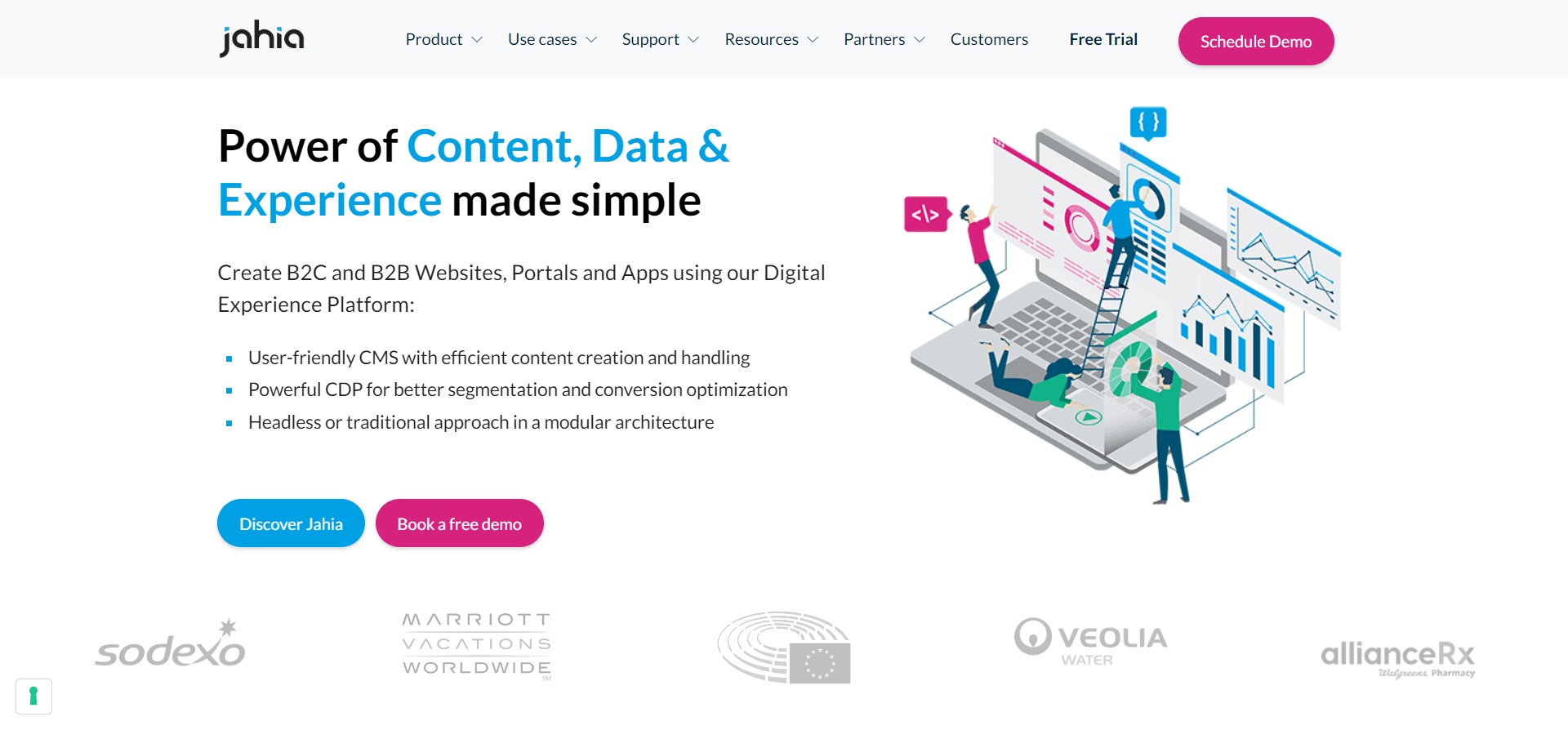
With the help of Jahia, companies can organize digital assets into specific folders and distribute them via different channels as necessary. Managers may test and evaluate digital interactions using the customization engine, and they can use reports and actionable analytics to assess the performance of their content.
Features
- Content Management System (CMS)
- Personalization & A/B Testing
- Digital Asset Management (DAM)
- Portal Integration
- Customer Data Platform (CDP) Integration
- User & Role Management
- Workflow Management
- API-first Architecture
- Augmented Search Capabilities
- Cloud & On-Premises Deployment
Pros
- Jahia CMS offers impressive customization options for tailoring to specific requirements.
- It’s relatively straightforward to create custom components in addition to the pre-existing ones, enabling content editors to easily construct and manage websites.
Cons
- Jahia has a learning curve, and initial customizations may be challenging.
- Careful planning and experience can mitigate problems, but adjusting underlying data might still be necessary and somewhat challenging.
Pricing
Pricing is per request.
16. Monetate
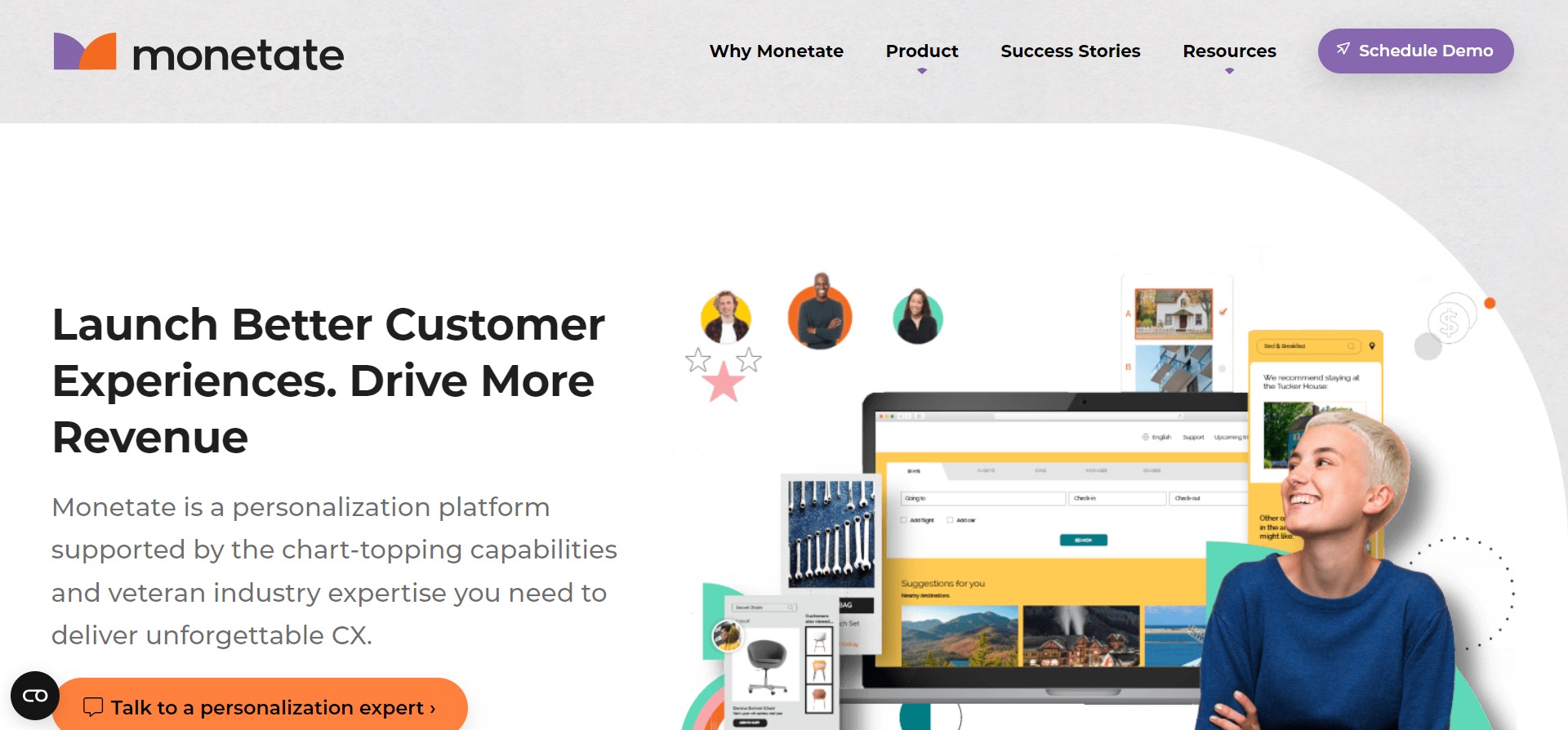
Without the need for technical expertise, Monetate offers a simple method for distributing various materials to customize or automated groups of all sizes. This enables you to stay one step ahead of consumer expectations and connect with people through more relevant experiences.
Features
- Personalization Engine
- A/B and Multivariate Testing
- Product Recommendations
- Dynamic Content
- Segmentation & Targeting
- Customer Data Platform (CDP) Integration
- AI-driven Insights
- Mobile App Personalization
- Real-time Individualization
- Reporting & Analytics
Pros
- Monetate is extremely user-friendly, enabling anyone to create tests on their website without developer assistance.
- The platform’s intuitive design aids in comprehending website structure and the underlying code.
Cons
- It can sometimes be challenging to identify the correct selector for use in a test.
- Without exporting the data to an external system, it is hard to segregate data after a test has performed.
Pricing
Pricing is per request.
17. HeadSpin
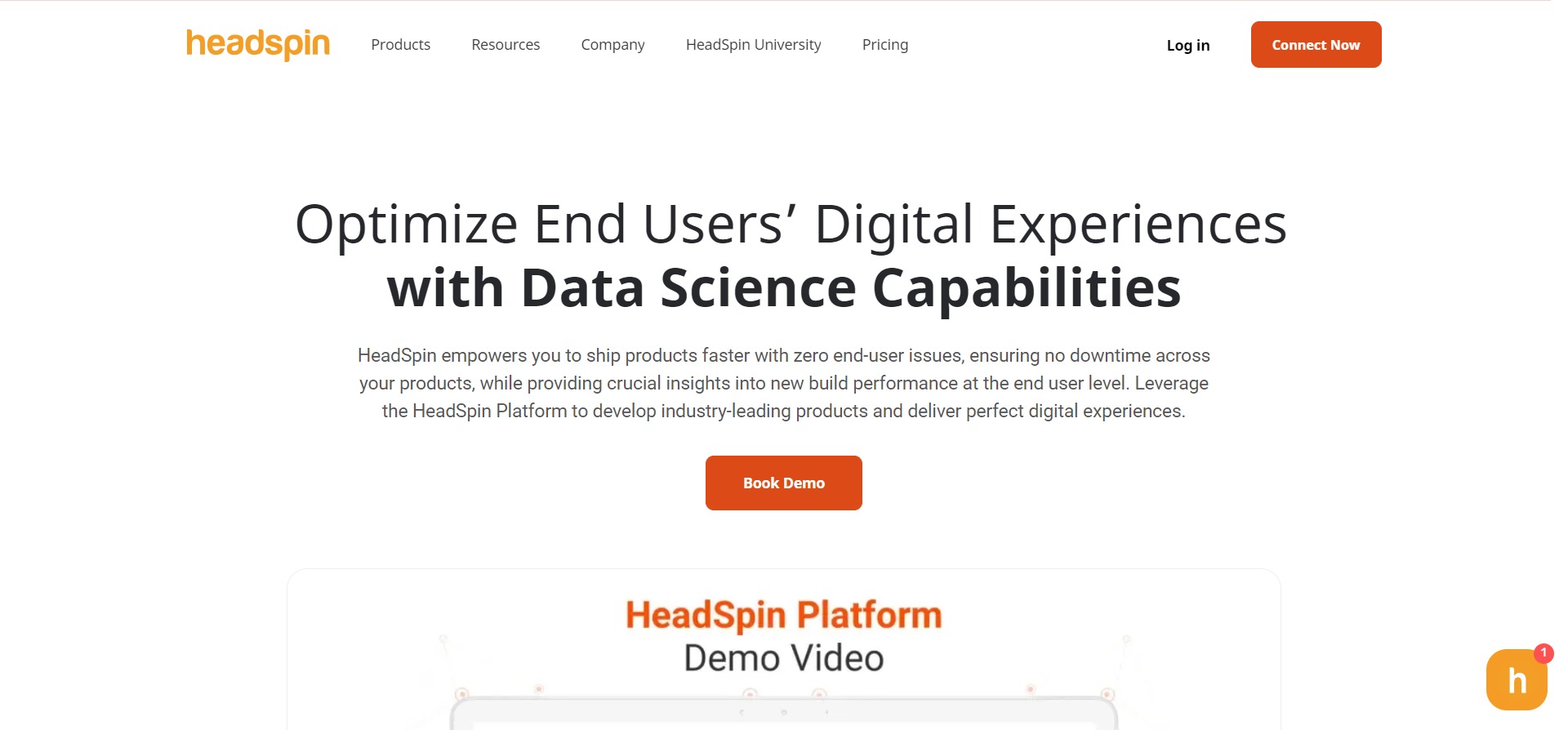
A digital experience platform called HeadSpin is designed to help companies in a variety of sectors, optimize their experiences Managers may undertake root-cause analysis, obtain statistics, get recommendations, and monitor variables across devices, networks, and locations using the performance optimization module of the company’s software.
Features
- Real Device Testing
- Global Device Infrastructure
- Performance Benchmarking
- Network Emulation
- Video Session Replay
- Automated Testing
- Performance Metrics & Insights
- Crash Analytics
- Voice & Audio Testing
Pros
- The ability to run tests on 5-10 browsers simultaneously is a major time-saver, eliminating the need to switch between browser windows.
- The platform stays current with the latest browser versions, ensuring compatibility and reliability.
Cons
- Language limits
Pricing
Pricing is per request.
Free digital customer experience platforms
Below are the digital customer experience platforms that have a free forever plan you can use if you’re on a budget.
- UXtweak
- LiveAgent
- Freshdesk
Wrapping up
Prioritizing customer feedback and leveraging it to drive design and product enhancements is paramount for exceptional user experiences.
If you’re looking to supercharge your UX research efficiency, don’t hesitate to register for UXtweak, where you can access a suite of testing tools, all designed to elevate your digital customer experience game.



